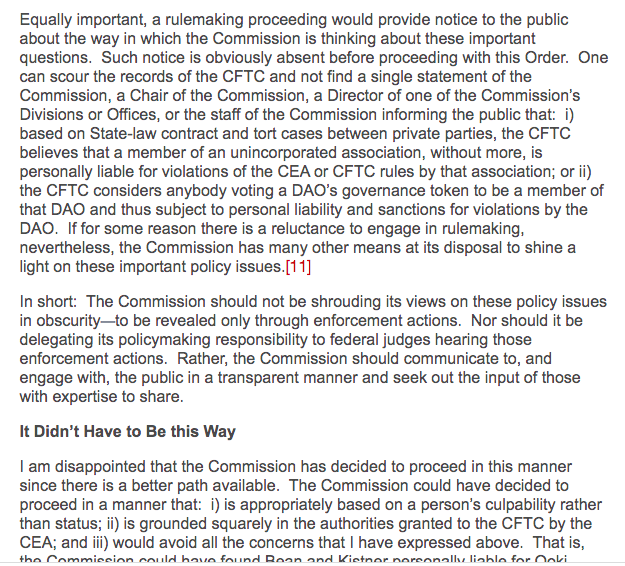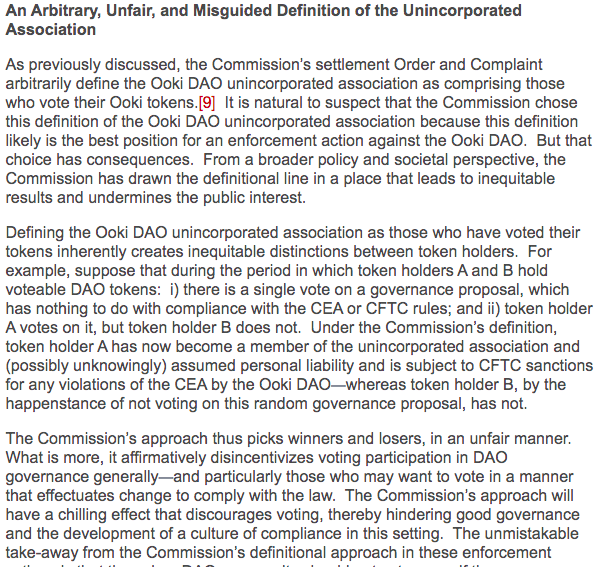
CFTC brings first regulatory action against an alegal #DAO, charging #OokiDao with operating an unlicensed FCM; seeking disgorgement, restitution, civil moneyary penalties, trading and registration bans and injunctive relief. Lots to talk about here: /1 cftc.gov/PressRoom/Pres…
allegations in claim against Ooki #Dao characertize it as an "unincorporated association comprised of holder of Ooki Tokens" and legacy BZRX Tokens who have voted those tokens to govern (e.g. to modify, operate market and take other actions w/r/t the Oooki Protocol." /2
This a huge distinction. While the #DAO is itself a named party, it is unincorporated which leads to all sorts of material questions about who can be sued for what. In this case the complaint makes clear that the Dao is those who (a) have tokens and (b) have voted to govern. /3
so, the Dao isn't every passive token holder; it's comprised of the humans and entities that used their tokens to vote. /4
the complaint further alleges that the Dao itself controlled and operated the bZx protocol as bZeroX had done prior to turning control over to the Ooki Dao: 



factors suggesting that the DAO retained full control post- turn over: 1. protocol remained open to be used, 2. the Dao continued to "market, solicit orders for, and facilitate access to the ... Protocol, including through individuals acting on the bZx DAO’s behalf /5
(incl the bZx Founders) and the front-end website the bZx DAO now controlled..." 3. the DAO collected the same fees as the prior operators, 4. the DAO controlled the keys which gave it access and control the operation of and the funds held in the relevant ... smart
contracts /6
contracts /6
the front end website "continued to advertise the lack of KYC / AML requirements as a positive feature of the bZx Protocol; offered any user anywhere in the world (including in the United States) the ability to trade on the Protocol; /7
& not act to exclude U.S. persons and/or non-ECPs from the Protocol. /8
Complaint alleges use of governance product that is broadly permissive and gives extensive control to token voters users; query how much control is too much control? /9 

Complaint seeks a bar of all token holders who voted as part of the DAO from the commodities markets /10 

Big picture themes to take away: 1. How much control does a Dao have? if it's too much, maybe it's the counterparty to the transactions offered by the protocol; maybe decentralization of control over the protocol, not over voting to control of the protocol is what matters. /11
2. Maybe this isnt the death of all Daos but a strong reminder that you shouldn't offer regulated transactions to US persons if you're not complying with the regulations? h/t to you know who.... /12
OH- and ALWAYS read the dissent: cftc.gov/PressRoom/Spee…
and rejects regulation by enforcement in favor of rulemaking and other ways to give information to the market 



• • •
Missing some Tweet in this thread? You can try to
force a refresh






